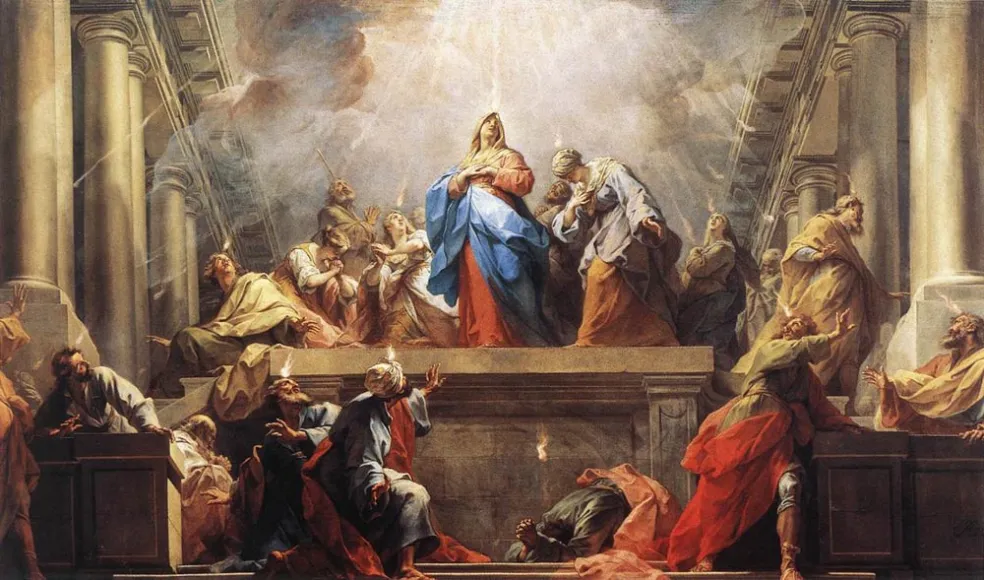There are many aspects of Mary she is a mother and a slave, she has trust and remains faithful, she becomes a missionary, she comes close to us, she lives in the sanctuary of her heart, a woman of interior life who welcomes and is nourished by the word: the Verb, she is illuminated by the child who takes form in her, she who believed without having seen prays in the Church and is made known in the Church.

1. Faith and availability
When she receives the call, Mary is very willing. She calls herself a servant and her whole life becomes a space for the child who is germinating in her womb. But she is a servant-mother, who gives herself with all the strength and enthusiasm that is proper to maternal love. Mary puts at Jesus’ disposal a boundless generosity: intelligence, heart, body, today, tomorrow, always, in the joy of Christmas, in the flight to Egypt, in the daily routine of Nazareth, so long and so simple, and in the great pain of the death of her Son. This availability is essentially love.
2. Faith and trust
Mary lives a confident faith. She does not calculate the path she must take. God and sets out on the path of the adventure of the coming Messiah. Cardinal Angelo Comastri, when he was bishop of Loreto, saw Mary’s yes in this way:
3. An awakened faith
Mary is like a woman who keeps the door of her house open so that all the messengers of God can enter. She is constantly evangelized by Gabriel, by Joseph, by Elizabeth, by the shepherds, by the Magi, and in the Temple by Simeon and Anna. She pays attention to the first words of Jesus: “Did you not know that I am in my Father’s house? It is a humble, attentive, growing faith that flows from surprise to surprise under the impulses of the Spirit. Mary surpasses all our experiences of faith. For her, as for us, Jesus is an ever new man, his words open new horizons; he surprises, fascinates, shocks, does not let faith fall asleep, and takes the strange path of Calvary, so contrary to human nature, so contrary to a mother’s heart, but so in keeping with the wisdom of God. On Calvary, Mary is not absent; she remains standing at the side of the cross of her Son. Follow the path of the Son, live the faith of the one who has given everything to the Son, the faith of the one who has given us the Son, the faith in the Son who strips himself of everything, who gives himself entirely. It is a logic that surprises the calculations of our logic; it is the logic of God.
4. A faith lived in the heart
Mary’s faith is like a plant cultivated in the heart. It grows in the shadow of reflection and prayer. It is a faith kept every day, throughout life. It becomes the light that illuminates the first two chapters of Luke’s Gospel. The Annunciation was a day of fire. Mary cultivates this fire in her heart throughout her life and it becomes the light that illuminates our faith. The heart that preserves all that is said about Jesus and all that the Master says becomes the laboratory of faith: “But Mary pondered all these events, seeking their meaning… And his mother kept all these events in her heart” (Lk 2:19 and 51).
5. Faith and the word
The Magnificate is interwoven with reminiscences of the Old Testament. Here we discover a new richness of Mary’s heart: it is filled with the word of God, it lives from the word of God. Faith is strengthened by familiarity with the word of God. Through it, it is enlightened, revived, nourished, and becomes bolder. The word of God formed the essence of Mary’s prayer and expressed her faith. The apostolic exhortation Ver bum Dominio, contemplating Mary’s faith, states: “…we must look where the reciprocity between the Word of God and faithfully complement each other; that is, us as the woman disposed to the will of God… A Virgin in an attitude of listening, she lives in total harmony with the word of God.”
6. Faith and solidarity
Mary uses the psalms of her ancestors, she lives in communion with the faith of her people; it is a faith that is born within the communion of saints. It is not a solitary faith; it is rather a journey with all the poor of God, under the light of the word. This history has its origin in Abraham, who had received the promises and reached Mary, her son, who fulfills them. But Mary travels through all generations and sees them protected by the mercy of God. In this way, Mary shows herself to be strongly rooted in her people, in the adventure of her people. Contemplating this woman filled with the word of God and possessed by the Word, the apostolic exhortation Ver bum Dominio says: “The Church must place herself as if within the word, to allow herself to be protected and nourished, as if she were a mother’s womb, following the example of the Virgin Mary.







